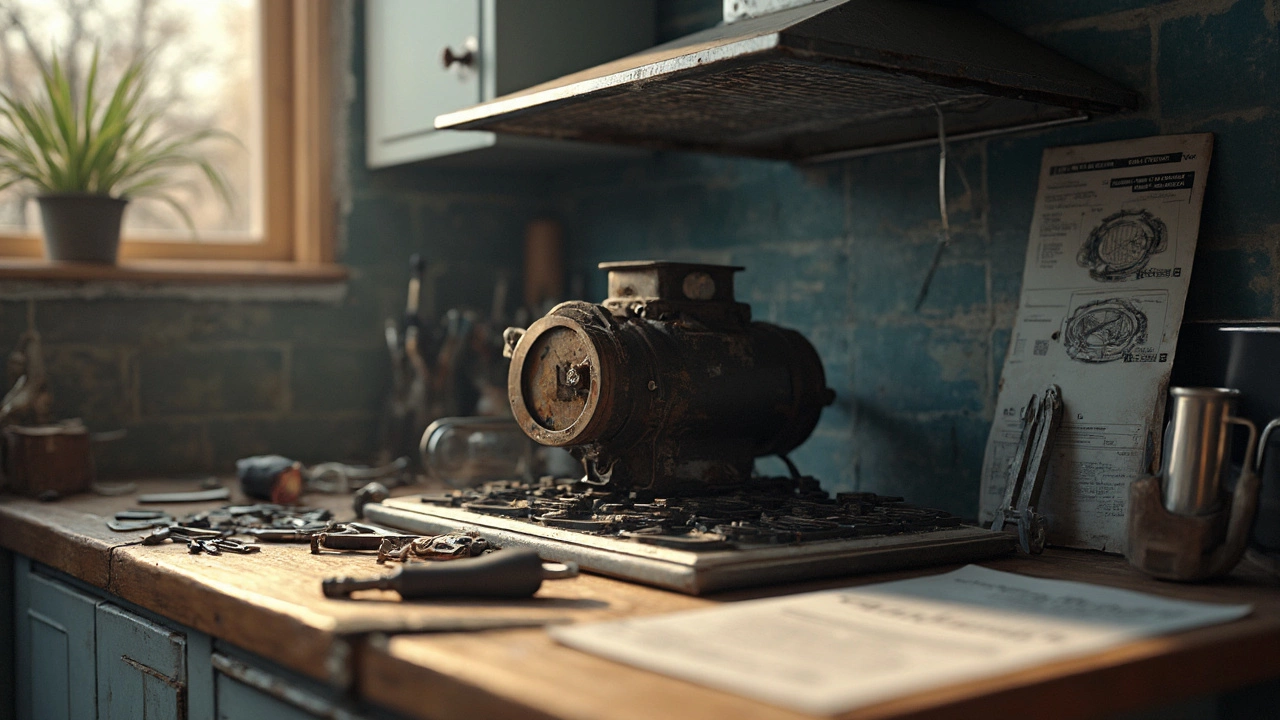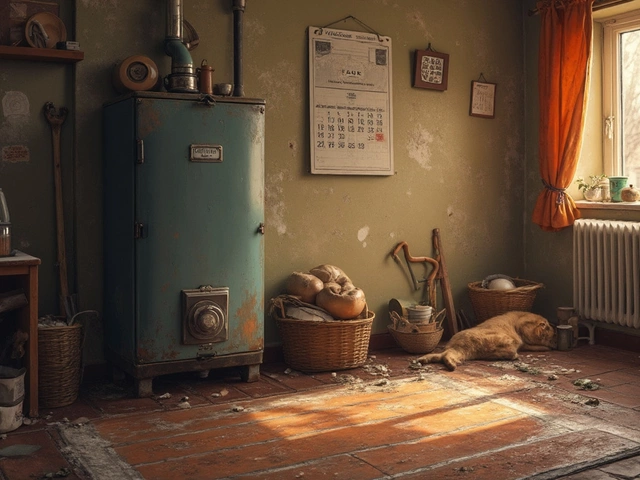Cooking smells, steam and grease love to hang around your kitchen. A good extractor fan pulls that nasty air out, but like any appliance it can fail. If your fan is quiet when it should be loud, smells funny, or simply stops working, you don’t have to panic. Most problems are easy to spot and fix, and even a complete replacement can be a weekend DIY project.
First, turn off the power at the consumer unit. No electricity, no shock risk. Next, remove the fan housing. Usually a few screws or clips hold it in place – check the manual for your model. Once the housing is off, you’ll see the motor and the filter. If the filter is dirty, give it a good rinse; a blocked filter is the most common cause of weak suction.
When the motor looks burnt or makes a grinding noise, it’s time for a new fan. Measure the dimensions of the old unit (width, depth, and vent size) and note the connection type – most UK fans use a standard 110‑210 V plug, but some are hard‑wired. Take these details to a local hardware store or search online for a matching replacement.
Installation is the reverse of removal. Secure the new housing, connect the wiring or plug, and fit a fresh filter. Before you finish, run the fan for a minute to check airflow. If it feels strong and the noise is normal, you’re done. Clean the filter regularly – once a month during heavy cooking periods – to keep performance top‑notch.
If you’ve checked the power, cleaned the filter, and the fan still won’t run, the issue is likely electrical or motor‑related. Dealing with mains wiring can be dangerous without proper training, so call a qualified electrician or a specialist extractor‑fan repair service. They can test the motor windings, replace damaged capacitors, or fix wiring problems safely.
Another red flag is persistent odd smells, like burning plastic. That usually means insulation is failing, and a professional should replace the motor right away to avoid a fire risk. Also, if your kitchen has a built‑in duct that leads through the roof, you might need a roof access point inspected for blockages or damage – a task best left to a tradesperson.
Finally, consider the age of the fan. Most extractor fans last 8‑12 years with regular maintenance. If yours is older, a full replacement may be cheaper than repeated repairs. A professional can advise on the most energy‑efficient models, which can lower your electricity bill.Keeping your kitchen fresh doesn’t have to be a chore. A quick filter clean, occasional visual check of the motor, and knowing when to call in a pro will keep your extractor fan humming smoothly for years.

Thinking about swapping out the motor in your extractor fan? This article breaks down what's really involved, the red flags that mean the motor's cooked, and how to decide if you should tackle it yourself or call in a pro. It covers how to find the right replacement part, tips to avoid shocking mistakes, and why some fans just aren’t worth fixing. Whether your bathroom fan wheezes or your kitchen extractor hums like a jet, here’s how to handle a motor on its last legs.

In the world of home heating, boilers are real workhorses. But have you ever wondered how long your trusty boiler will keep chugging along? Typically, a boiler can last anywhere from 15 to 20 years, depending on various factors like maintenance, usage, and quality of installation. Knowing when to fix or replace your boiler not only ensures a warm home but also helps you avoid unexpected expenses.

Microwave suddenly dead? It might be the fuse. This article breaks down the real cost of repairing a microwave fuse—parts, labor, hidden fees, and whether you should DIY. You'll get practical tips on when to call a pro, what brands cost more, and how to avoid common mistakes. A straightforward guide to help you fix your microwave without overspending.

Thinking about repairing your cooker? This guide covers repair costs, when to fix or replace, and expert tips to help you decide what's best.

Thinking of tackling an extractor fan installation on your own? Doing it yourself can be a rewarding project if you have the right tools and know-how. This guide breaks down the process into manageable steps, explains what to watch out for, and offers practical tips to avoid common pitfalls. You'll learn when it makes sense to go DIY and when you might need to call in a pro.

Trying to figure out if you should repair your electric stove or just buy a new one? This article breaks down the real costs, common repairs, and the value of fixing versus replacing. Find out what issues are usually fixable, what repairs make sense, and when to let go. You'll also get practical tips for simple DIY fixes and signs you need a pro. Make a smart choice for your kitchen and your wallet.